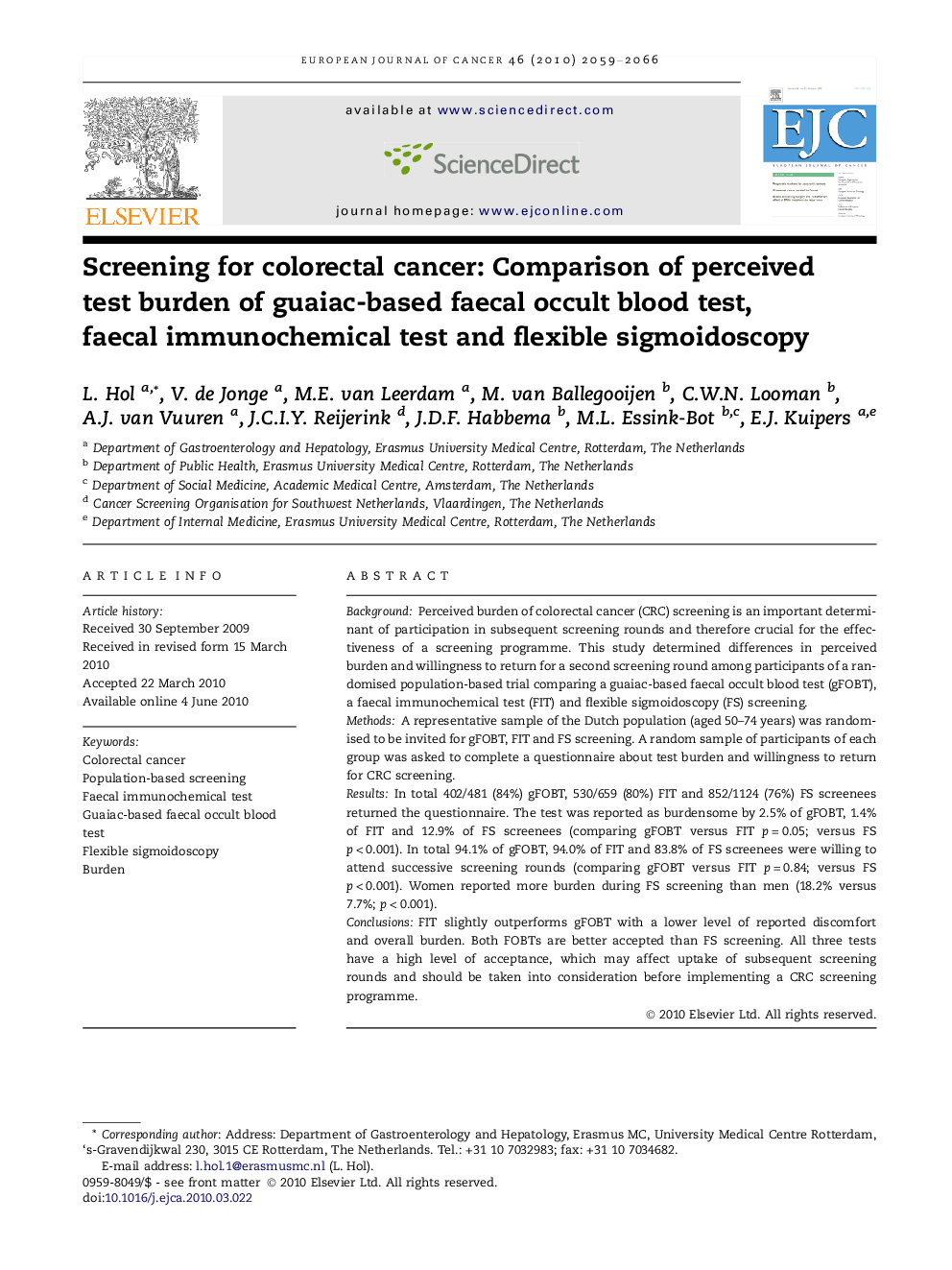| Article ID | Journal | Published Year | Pages | File Type |
|---|---|---|---|---|
| 2123266 | European Journal of Cancer | 2010 | 8 Pages |
BackgroundPerceived burden of colorectal cancer (CRC) screening is an important determinant of participation in subsequent screening rounds and therefore crucial for the effectiveness of a screening programme. This study determined differences in perceived burden and willingness to return for a second screening round among participants of a randomised population-based trial comparing a guaiac-based faecal occult blood test (gFOBT), a faecal immunochemical test (FIT) and flexible sigmoidoscopy (FS) screening.MethodsA representative sample of the Dutch population (aged 50–74 years) was randomised to be invited for gFOBT, FIT and FS screening. A random sample of participants of each group was asked to complete a questionnaire about test burden and willingness to return for CRC screening.ResultsIn total 402/481 (84%) gFOBT, 530/659 (80%) FIT and 852/1124 (76%) FS screenees returned the questionnaire. The test was reported as burdensome by 2.5% of gFOBT, 1.4% of FIT and 12.9% of FS screenees (comparing gFOBT versus FIT p = 0.05; versus FS p < 0.001). In total 94.1% of gFOBT, 94.0% of FIT and 83.8% of FS screenees were willing to attend successive screening rounds (comparing gFOBT versus FIT p = 0.84; versus FS p < 0.001). Women reported more burden during FS screening than men (18.2% versus 7.7%; p < 0.001).ConclusionsFIT slightly outperforms gFOBT with a lower level of reported discomfort and overall burden. Both FOBTs are better accepted than FS screening. All three tests have a high level of acceptance, which may affect uptake of subsequent screening rounds and should be taken into consideration before implementing a CRC screening programme.
